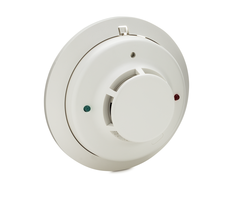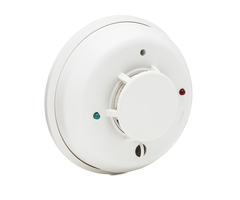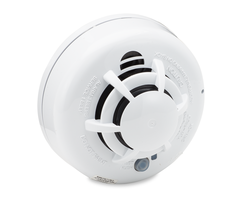Will a Smoke Detector Detect Heat?
A smoke detector will only detect heat if that is an included function of the device. There is no rule that a smoke detector must also detect high temperatures. That said, many smoke detectors do include a heat sensing function. You should check the device to determine its capabilities.
Unless stated otherwise, a smoke detector will only respond to the presence of smoke. Upon sensing smoke, the device will respond based on its programmed settings. The main distinction for smoke detectors is whether they are monitored or conventional. A monitored smoke is a smoke detector that is connected with an alarm system in some way. This type of smoke detector can be used to send a distress signal to a central monitoring station or to send an alert to the user. On the other hand, a conventional smoke is just a local sound maker, and it will not send an outside alert in any way.
Regardless of whether the device is monitored or conventional, a properly functioning smoke detector will always activate upon sensing smoke. The smoke particles will enter into the device's sensing chamber and cause an alarm to sound. This is true for any smoke detector. However, some smoke detectors will respond to more than just smoke. Some will also activate upon sensing unusually high temperatures that would only be associated with a fire. These are appropriately referred to as smoke and heat detectors. Other smoke detectors may also respond to the presence of life-threatening carbon monoxide gas. Once such device that will respond to smoke, high temperatures and carbon monoxide is the Honeywell 5800COMBO. Again, you must check the sensor to determine its functionality. But unless otherwise stated, you should assume that a smoke detector will only respond to smoke. When purchasing a monitored smoke detector, you must also make sure that it is compatible with the alarm system you are using.
Additionally, there are also standalone heat sensors and carbon monoxide detectors that do not necessarily include a smoke detecting function. These devices are good for areas where smoke detection may be unneeded or undesired. For example, a standalone heat sensor might make more sense for a room where smoke is likely to be present, such as a kitchen or a designated room for smoking cigarettes.
Did you find this answer useful?
We offer alarm monitoring as low as $10 / month
Click Here to Learn MoreRelated Products












Related Categories
- Wired Smoke Detectors
- Smoke & Heat Detectors
- Smoke Detectors
- Wireless Smoke Detectors
- Honeywell SiX Smoke Detectors
- Honeywell 5800 Smoke Detectors
- Answered


